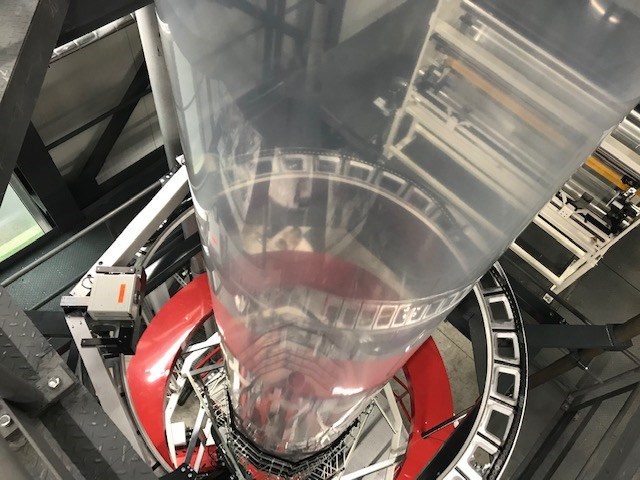Polykar Adds Third W&H Multi-Layer Line
New Optimex adds seven million lb of capacity.
Blown film processor Polykar announced that it has installed and commissioned a third Windmöeller & Höelscher (W&H) Optimex line at its Montreal plant. Polykar makes polyethylene film, certified compostable bags, garbage bags, and food- and industrial-grade liners.
The Optimex system will give Polykar the flexibility to produce a broad range of three-layer film films at high outputs while ensuring maximum quality and faster product changeovers, the processor says.
Polykar says its $3 million investment will support the increasing demand from North American customers for high quality and complex PE-based film structures. The additional line also increases the processor’s multi-layer capacity to 22 million lb and will result in quicker product turnaround, the company notes.

Commenting at the machine start up, Amir Karim, president of Polykar, notes, ‘’We are very excited to see our third Optimex line installed, not only for the much-needed increase in production, but also for the addition of half a dozen new technical positions in our coextrusion department, which will help us ramp up our share of the convertor film market.’’
Polykar’s first Optimex machine was installed in 2014, and was the 100th such line sold worldwide by W&H. “Looking back, I remember convincing Polykar that the Optimex would be a consistent and reliable machine that would allow them to produce high-quality coex films,” recalls Andrew Wheeler, president of W&H in North America. “Now, three lines in, we are trusted partners and friends. For W&H, it’s very satisfying to work with another family-owned company that puts as much value on the quality of machinery as we do.”
Related Content
-
Understanding Melting in Single-Screw Extruders
You can better visualize the melting process by “flipping” the observation point so the barrel appears to be turning clockwise around a stationary screw.
-
Single vs. Twin-Screw Extruders: Why Mixing is Different
There have been many attempts to provide twin-screw-like mixing in singles, but except at very limited outputs none have been adequate. The odds of future success are long due to the inherent differences in the equipment types.
-
The Importance of Barrel Heat and Melt Temperature
Barrel temperature may impact melting in the case of very small extruders running very slowly. Otherwise, melting is mainly the result of shear heating of the polymer.




